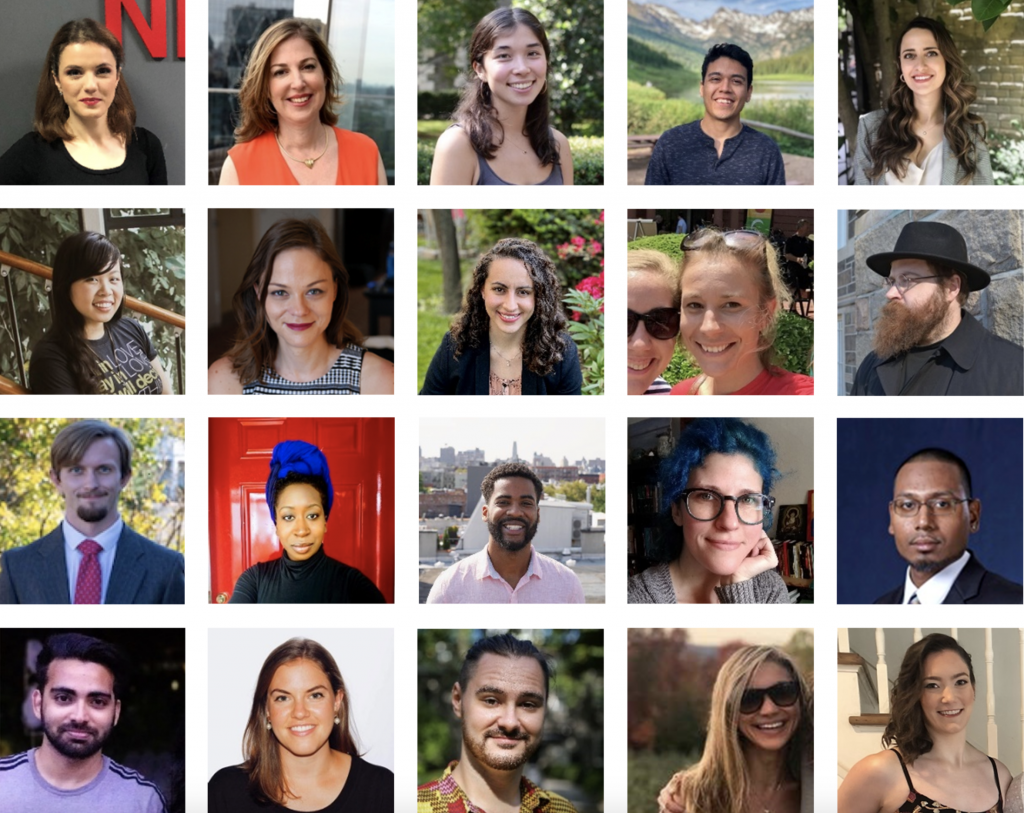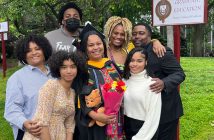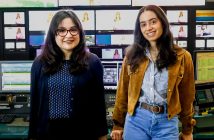 Twenty-one graduate students and new alumni recently collaborated on a cross-disciplinary essay collection that explores how the COVID-19 pandemic has affected different institutions across the world, including the U.S. economy and familial relationships.
Twenty-one graduate students and new alumni recently collaborated on a cross-disciplinary essay collection that explores how the COVID-19 pandemic has affected different institutions across the world, including the U.S. economy and familial relationships.
“As things were rapidly changing around us, I started to really think about how COVID was really impacting everyone,” said Maria Jimenez-Salazar, who spearheaded the project with Evan Auguste, a fellow doctoral candidate in clinical psychology at the Graduate School of Arts and Sciences. “I became really motivated to hear from different perspectives and try to make sense of how other people were thinking about it.”
In mid-March, Jimenez-Salazar and Auguste recruited graduate students from more than a dozen disciplines, including history and cybersecurity. Most of the students are master’s or doctoral candidates from Fordham, but some study as far away as the University of California, Los Angeles.
In the first week of the project, the students were divided into nine working groups: economy/finance, editors, education, ethics/philosophy, media communications/technology, psychology, public health, social work, and sociology. Each group worked on an opinion piece that described how the pandemic affected their field and offered ways to help individuals and systems cope with the global crisis.
On May 22, they published seven essays on Medium.com. The first essay, “Neocolonial Travelers, Demonization, and ‘the Diseased,’” considers how previous health crises have worsened through group conflict and prejudice. Another essay, “A ‘Great’ Economy—Disrupted,” analyzes how the pandemic has exposed long-term issues in the U.S. economy that were not addressed after the 2008 global financial crisis.
“This [essay collection]is an example of how strong interdisciplinary work can be in terms of tackling and offering the full range and picture of a given event,” Auguste said.
Auguste and Jimenez-Salazar collaborated with four Fordham doctoral students on the essay “Mental Health in Crisis: Considerations for Individuals, Families, and Communities during COVID-19,” which describes the psychological impact of the pandemic.
Auguste and Nicola Forbes, a second-year doctoral candidate in applied developmental psychology, wrote about how the pandemic can be a source of cultural trauma, especially for the Asian-American community.
“What we’ve seen from previous health crises is that it’s almost expected that you’ll have this racist bigotry. But the issue that we’ve seen in some of the responses is normalizing that and saying that we can’t be overly critical; we can’t be too upset about this because it only makes sense,” said Auguste. “This can become a kind of trauma that exists far past the pandemic. It can become attached to a person’s identity and impact how future generations understand their culture and their ethnicity.”
The pandemic has changed Auguste and Jimenez-Salazar’s lives, too.
Auguste moved from his Harlem apartment to his parents’ home on Long Island. Instead of gaining clinical experience in a hospital, he now volunteers for the New York State Office of Mental Health’s Emotional Support Hotline and counsels people who have been impacted by pandemic, including those who have lost loved ones to the coronavirus, he said.
Jimenez-Salazar said she was diagnosed with COVID-19 in the second week of their writing project. For two weeks, she experienced most of the classic symptoms; they continued to linger for two more weeks. Since then, she has made a full recovery, she said, speaking in a Zoom call from the Bronx.
The coronavirus cut short Jimenez-Salazar’s time working with teenagers and young adults at an adolescent health clinic, where she worked as a psychology extern. Her spring semester ended from a distance, instead of in a classroom with her cohort. But she said this writing project has been a good way to connect with others and create something meaningful during the pandemic.
Jimenez-Salazar said she hopes this essay collection will not only acknowledge the negative impact of the virus, but also impart hope for a better, improved future.
“It’s been a big lesson on how diverse we all are in our understanding of global events, like a pandemic, and how interesting and important it is to have conversations that really capture that diversity and give voice to different perspectives,” said Jimenez-Salazar. “Right now in our society, we are seeing a lot of animosity or polarized opinions … By taking the time to really listen to diverse perspectives—not from a critical lens, but just out of curiosity—you can really learn a lot.”


